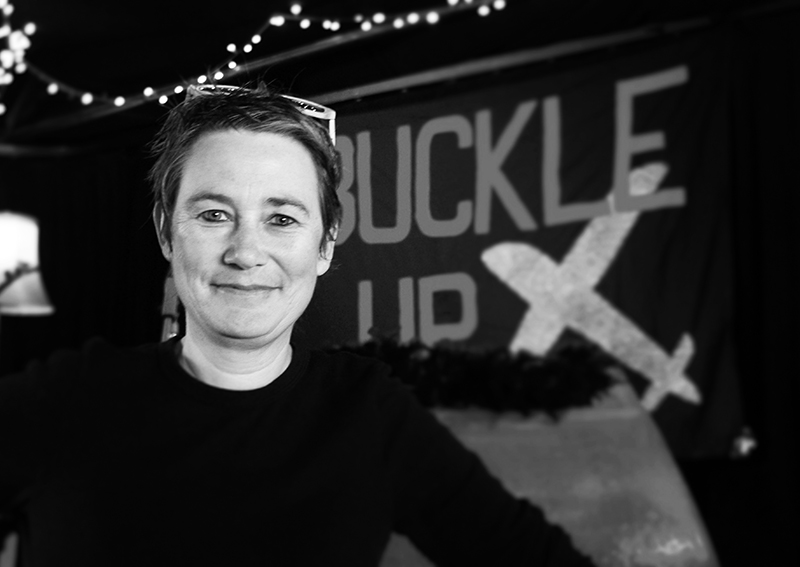Howard Twelftree Award: Emily Trott

Inaugural Howard Twelftree Award winner Duncan Welgemoed remembers Emily Trott, this year’s winner of the annual award for outstanding contribution to gastronomy in South Australia, who sadly passed away earlier this year.
Emily ‘Trotty’ Trott has always been an inspiration to me. She was dedicated and no bullshit, something that she imparted onto whoever was in the room. Humble and kind, Emily was always the sort of person the turn to for advice on your venue.
Was your staff on point? Was the ‘atmos’ right?
The first beer I drank on my arrival to Adelaide was at the The Wheatie (formally known as The Wheatsheaf Hotel). It was an excellent example of how to take your passion and knowledge and realise them in a no-frills, no-schnitty, no-TAB, no-pokies and no-TV pub.
A venue that pushed the craft beer and natural wine scene before they were ever things. A pub that celebrated whiskey and did an incredible amount for the local music scene. A high-integrity venue that gave the middle finger to the corporate pub culture of South Australia.
It was, and still is, glorious. It’s one of the few venues that encourages you to not pander to the orthodox, but to do what you want and make sure it’s bloody good.
Emily Trott was born in McLaren Vale and raised at Wirra Wirra winery. Her winemaker father Greg Trott was a forefather in the emergence of the modern Australian wine industry.
Greg was a champion for regionality and community; a characteristic that he imparted in no small way to Emily. Her love for ‘Thebartonia’, the Thebarton community in the west, and her passion for supporting local booze and events forever changed the way Adelaide viewed itself.
After completing her degree, she returned to the Fleurieu and gained her first proper experience in hospitality at the award winning Salopian Inn restaurant in McLaren Vale. After successful stints in many iconic pubs, it was at the Exeter where she met Jade Flavell and Liz O’Dea and they decided to purchase their pub, The Wheatsheaf Hotel, in 2003.
Emily was a woman of many passions and talents. Through the pub she championed the arts and live original music. Emily was also passionate about sport, supporting the Adelaide Roller Derby league through the Wheatsheaf, and was a dedicated AFL and cricket fan.
Her influence is felt across the small bars, restaurants and pubs in Adelaide and the regions. Trotty’s intangible something – that seems to have imbued itself into Adelaide – is one of the key reasons our local scene has become so unique. There was no creative industry left untouched in South Australia by her.

Emily Trott was honoured in memoriam at this year’s Hot 100 Wines dinner
I wasn’t aware of her illness; it was only months before she had to leave us that she walked past Africola. I grabbed her, sat her down and fed her. Whenever I had the opportunity to do it, I would. It is such a joy to cook for someone who you respect and admire.
Trotty died at home in May 2016 of cancer. News of her death on Facebook saw 1700 people acknowledge the notification page – and more than 260 people wrote a tribute.
Several hundred mourners joined Emily’s New Orleans-style funeral procession, complete with a brass band. They rumbled through the streets of Thebarton before a wake at the Wheatsheaf, aptly named ‘TrottFest’.
The funeral service at her childhood home at Wirra Wirra winery saw around 1000 friends and family attend to celebrate her humility, humour, creative spirit, and indefatigable passion. Tributes representing her life, included a raffia goose (goosey) – a gift from her father and the Wheatsheaf’s official mascot – and a Polaroid camera (she was a talented photographer) were laid on her hand-painted casket.
Such an out-pouring of love in a single place, such a celebration of life lived to maximum at every given moment, makes me think that perhaps ‘funeral’ would be a misnomer. It was so beautiful, so untouchable, so melancholic and pitch-perfect. Even at the last, Emily was embracing it all.
There is no-one more deserving of this award and none contributed or sacrificed more to our industry than Emily Trott. I am incredibly lucky to have known Em and her legacy will live on in South Australia for generations.
Emily is survived by her partner, Katie Crocker, and sister Catherine Trott.
Photo: Emily Trott, credit Kari Scannell